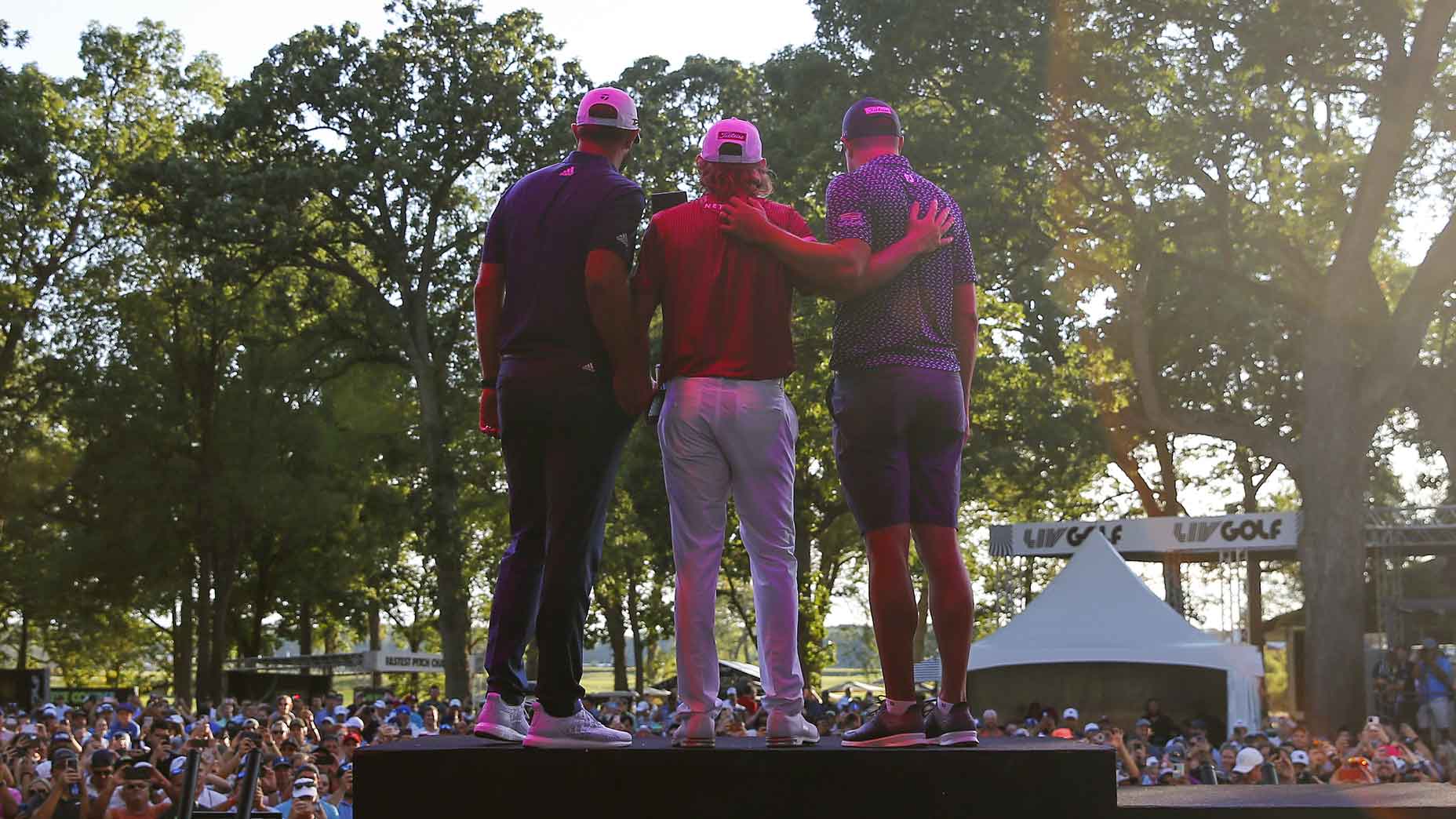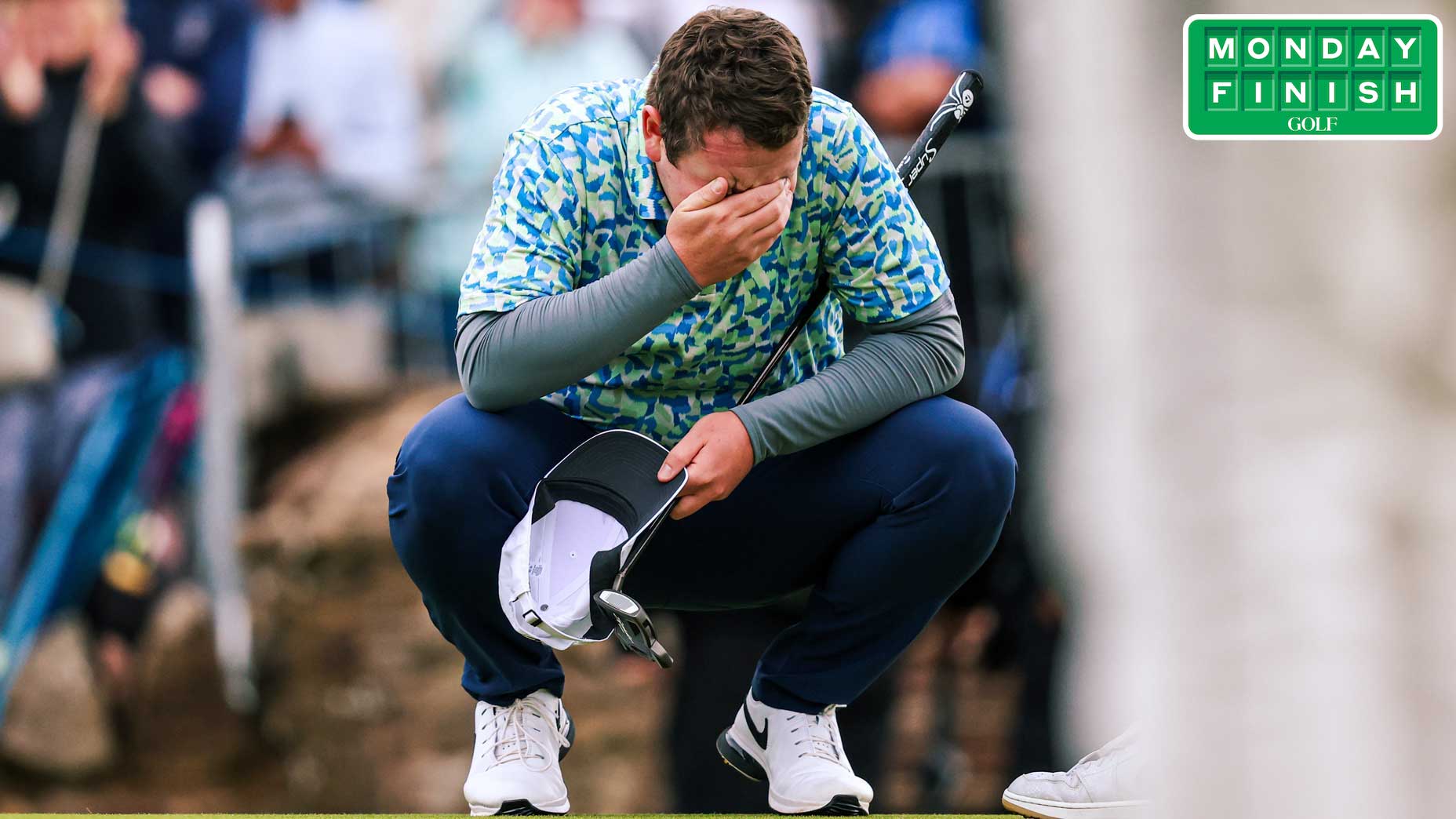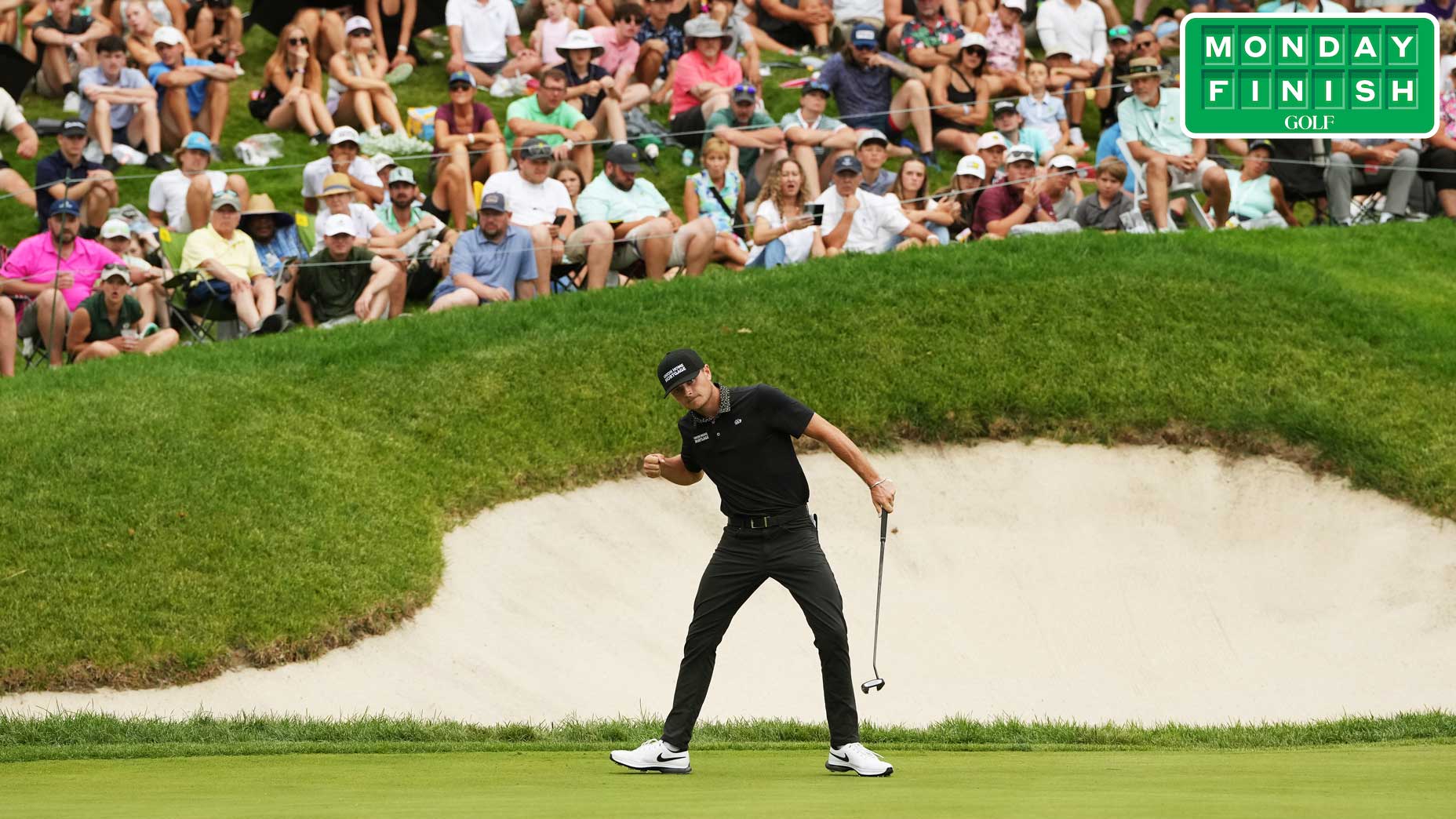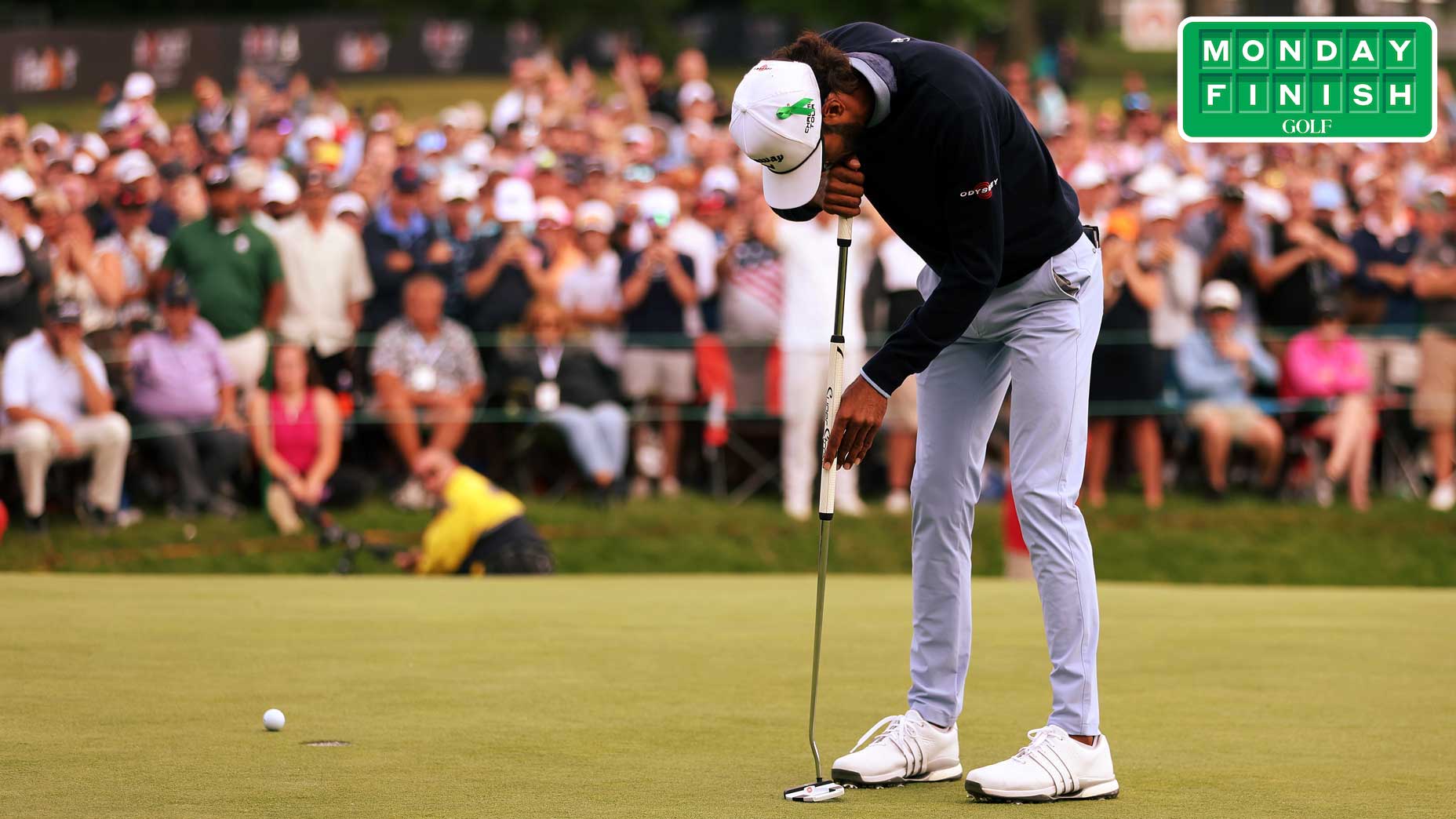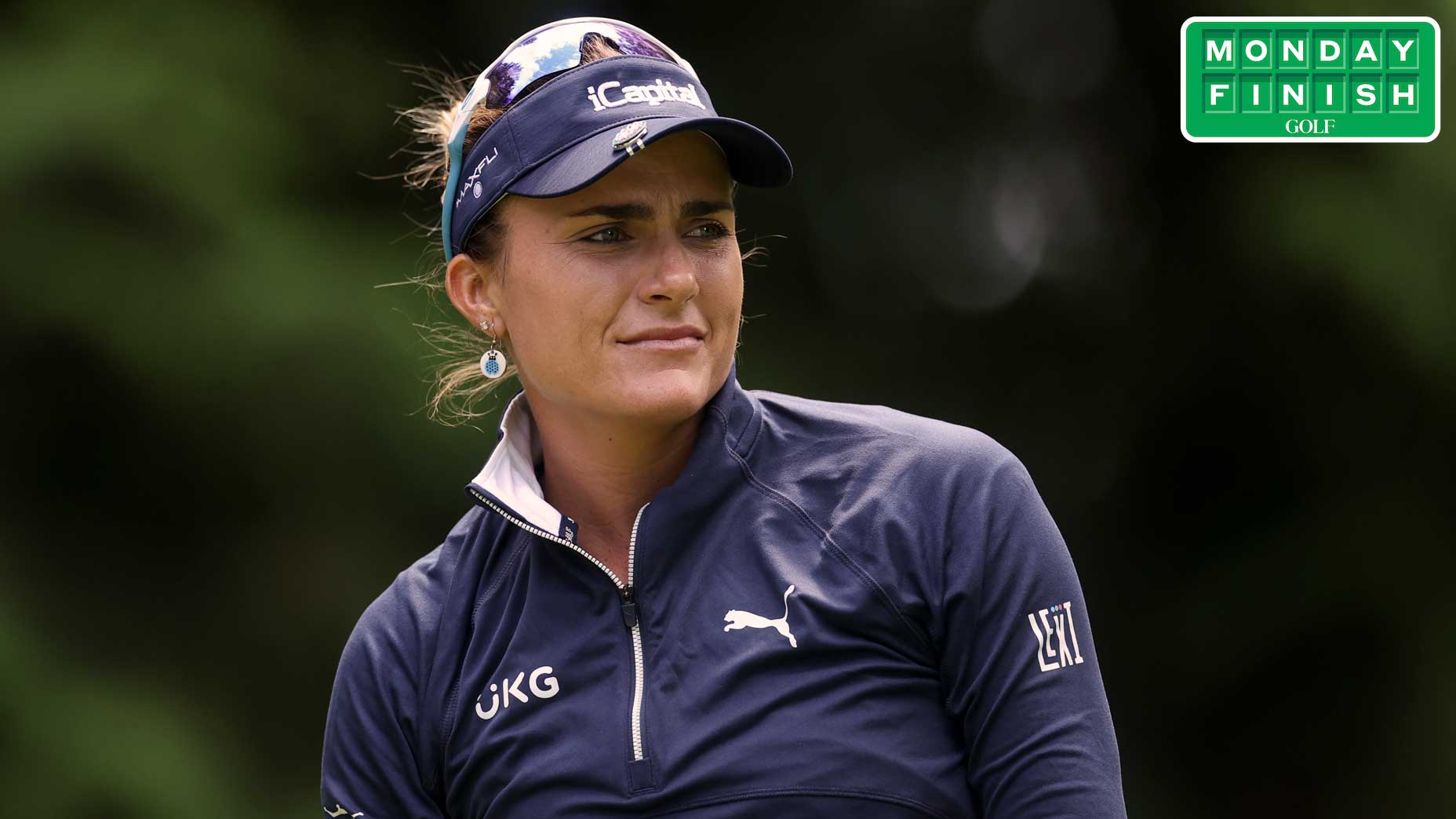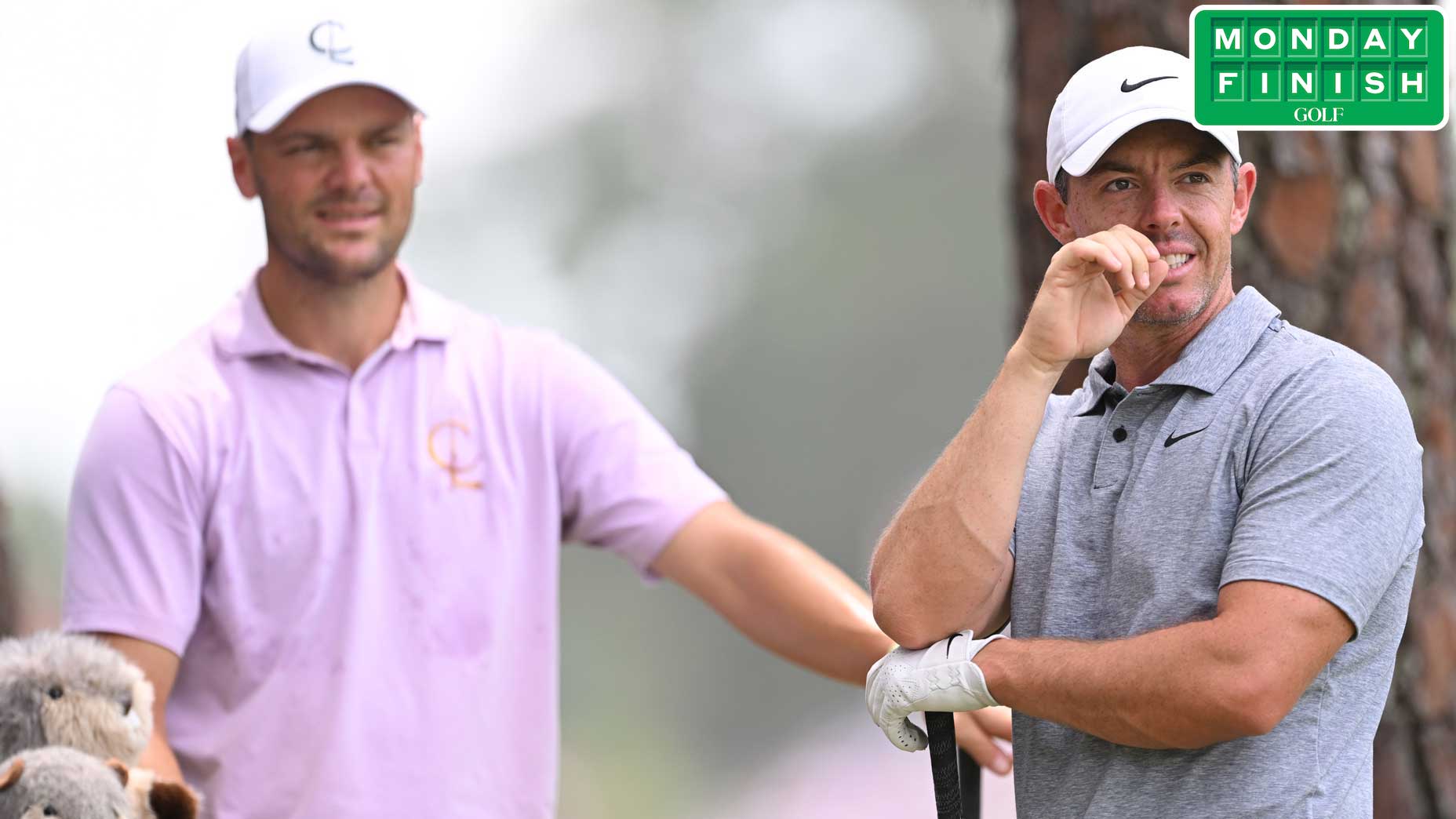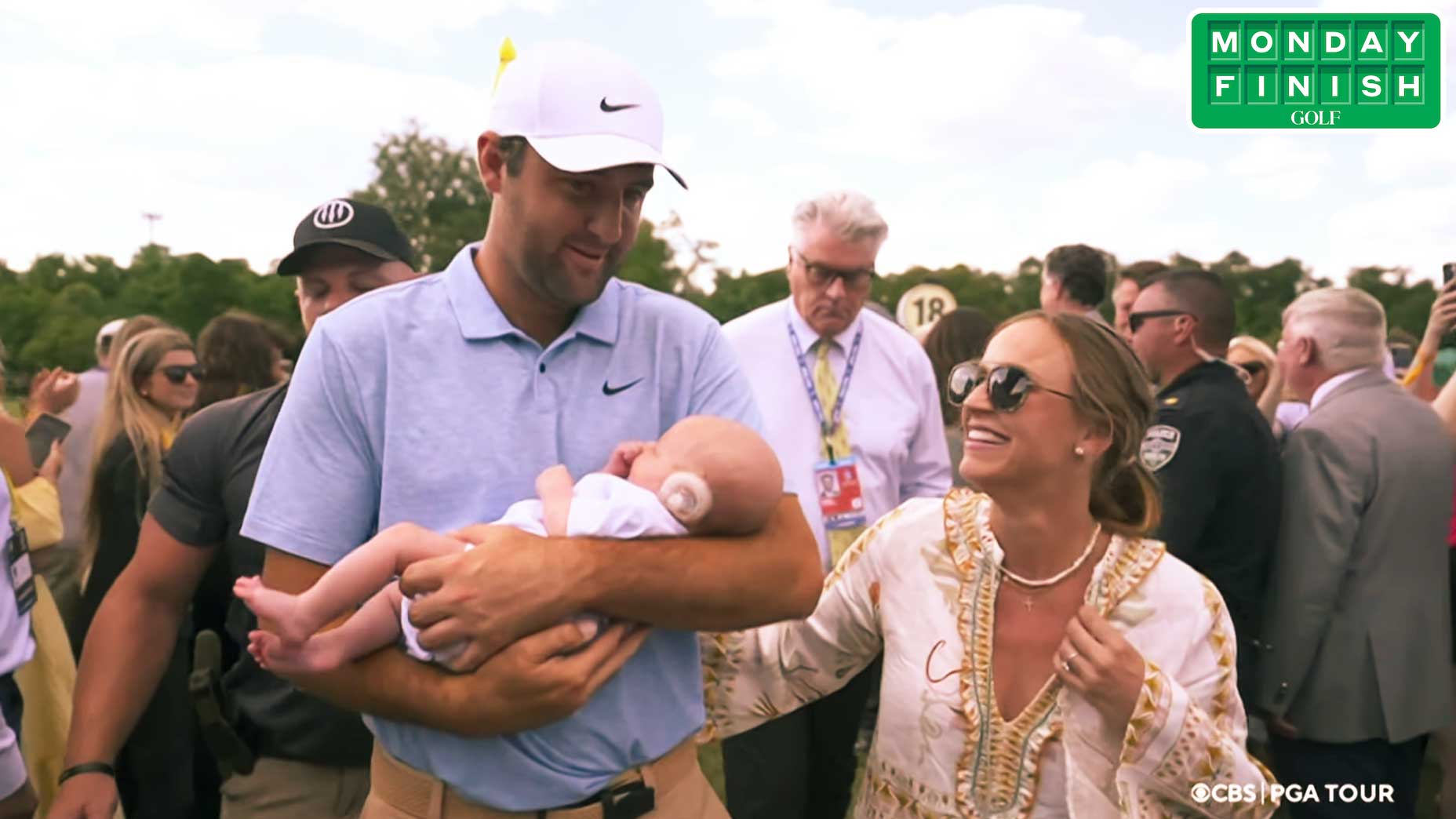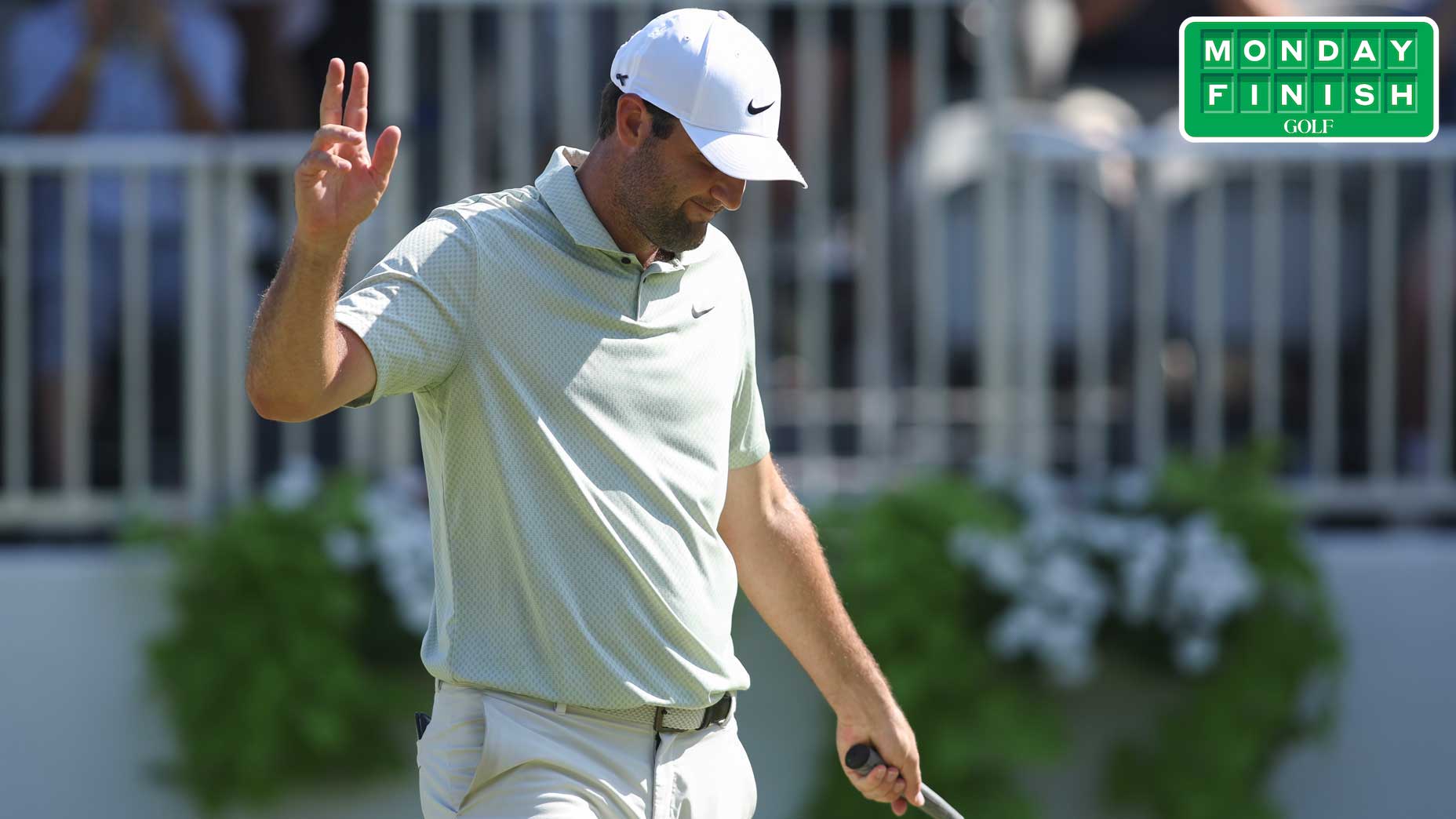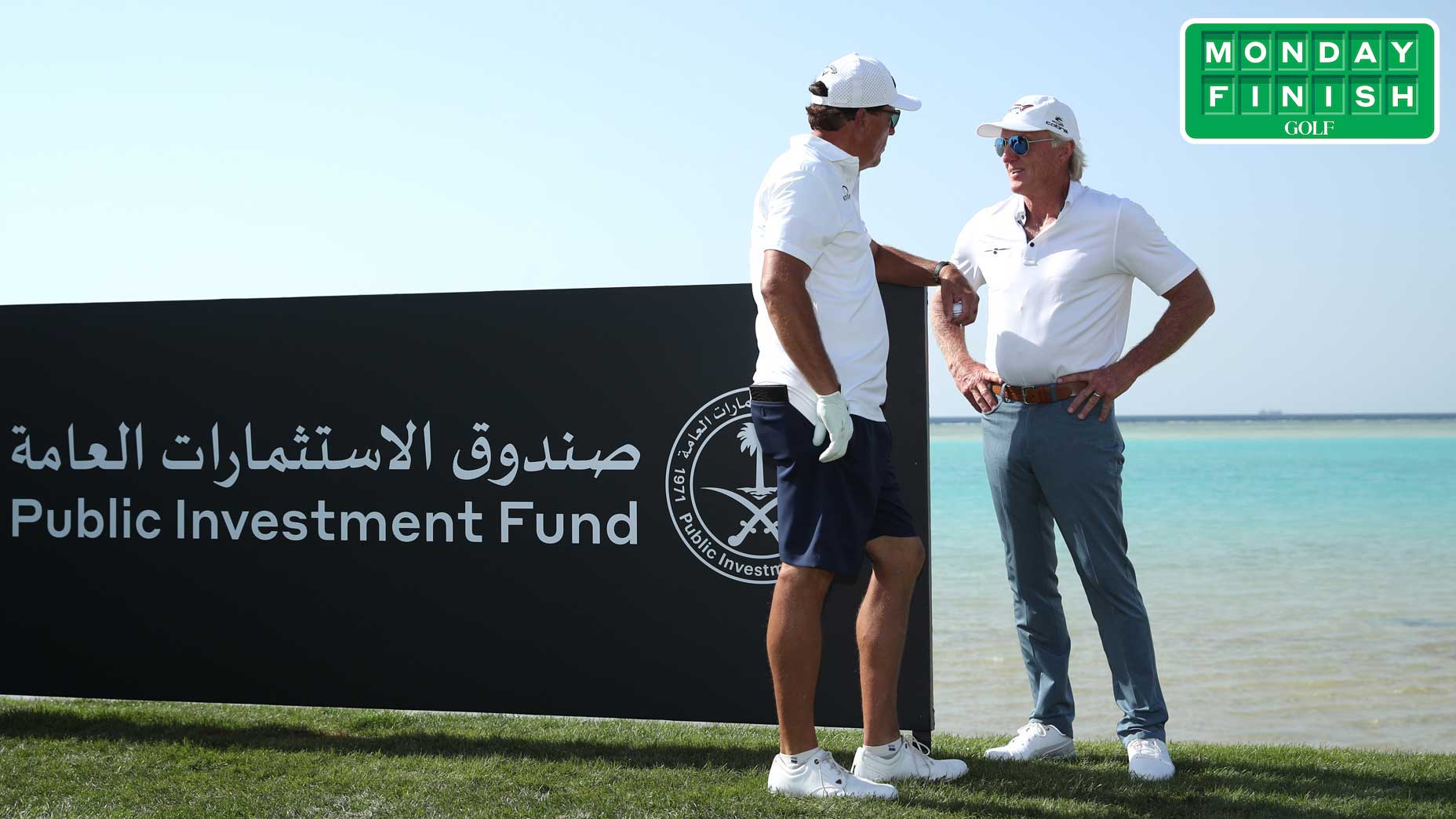This week, LIV Golf’s leaders delivered a different message
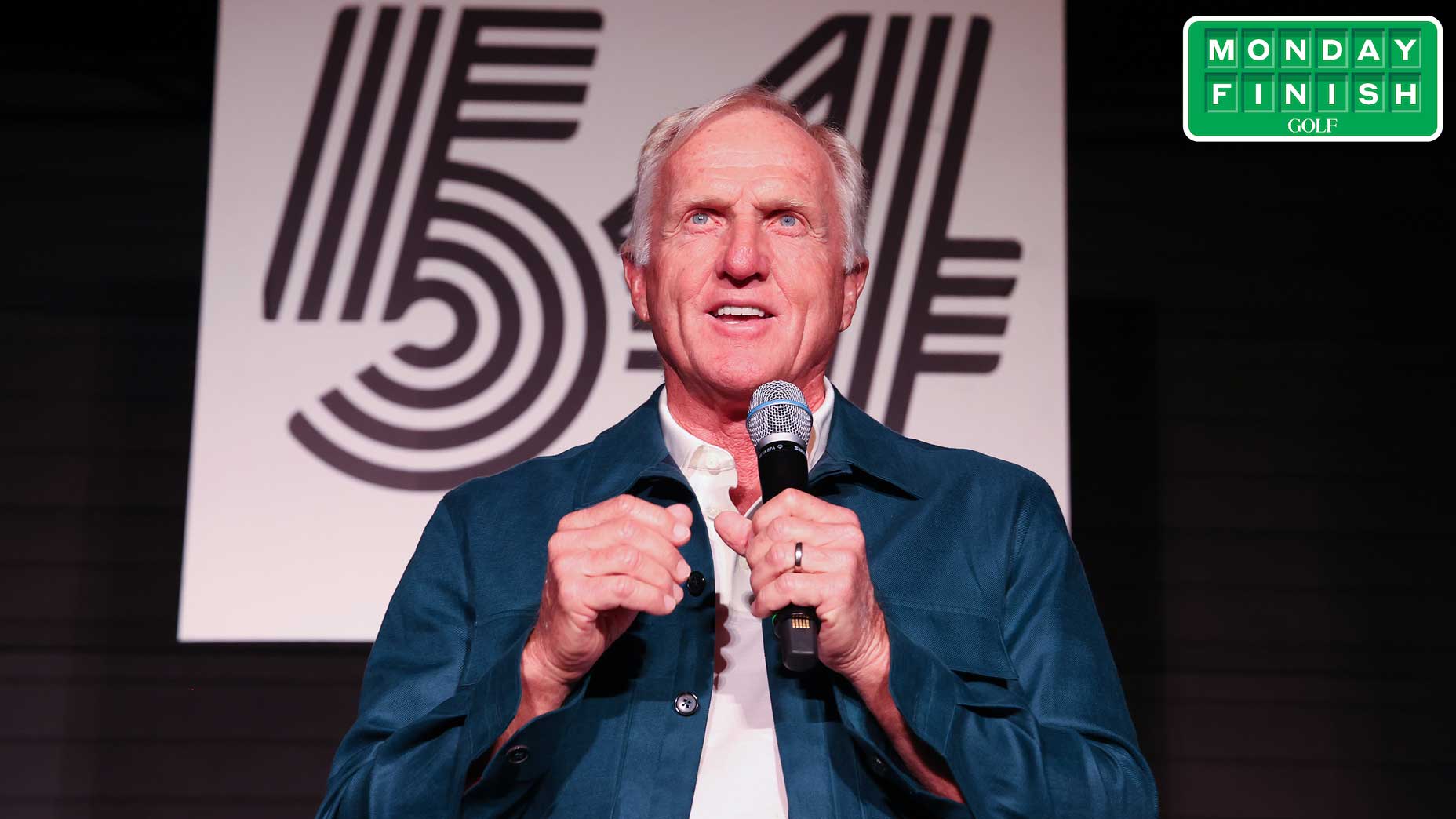
Greg Norman at LIV's Illinois event.
Getty Images
Since LIV Golf’s inception, the breakaway league has tried to walk a fine line. Act too aggressive and it would risk alienating potential players and fans. Act too timid and it wouldn’t create the disruption required for its success. So LIV tried to do a little bit of both, taking shots at the PGA Tour when given the chance (“surely you jest,” etc.) while maintaining the stance that they wanted to sit down with the Tour and work out some sort of compromise.
This week, that rhetoric changed. That means LIV’s public strategy is changing, too.
Greg Norman signaled the shift in an interview with The Australian. After a year of what he claims were attempts to find common ground with the Tour and with its commissioner, Jay Monahan, Norman said the dynamic has now flipped. He no longer wants a meeting.
“We have no interest in sitting down with them, to be honest with you, because our product is working,” Norman said.
As with all things LIV, how you see Norman’s latest media blitz depends on how you feel about the upstarts. You could argue that it’s easy for Norman to say he doesn’t want to meet with the Tour because they have made it clear they don’t want to meet with him. Oh, I can’t come to your party? I actually don’t want to!
But if you’re more receptive to the new league you could also argue that Norman and LIV have leapt over so many early hurdles that they’re taking a victory lap. Skeptics wondered if the circuit would be able to attract top talent and if it would be able to pull off events. While the PGA Tour has retained the large majority of its top-ranked pros, LIV’s promises of big-time paydays have won over a significant contingent from the top 100 in the world. Both the events and the accompanying broadcasts have gone off successfully, too, putting on a show for thousands of fans per day. And objections to the league’s Saudi funding have, over time, gotten increasingly buried in the daily churn of news. LIV’s launch hasn’t all been smooth, but given the tight time frame and lack of existing infrastructure, it has certainly been competent. Money helps with that, of course. Money will continue to be an asset.
As the fields have gotten stronger, LIV’s stars have showed out, too. Two of the league’s most precious signings, Dustin Johnson and Cameron Smith, have won its two most recent events. Norman crowed about their success on Instagram on Sunday, suggesting they were the “real” World Nos. 1 and 2. Top stars showing top form is good for LIV.
That’s not to say LIV’s success is inevitable. Thus far, its broadcasts have only run on YouTube and its website, commercial-free. And despite a strong in-person showing, over the weekend LIV struggled to maintain the audience. One accounting of viewership numbers showed peaks of 50,000, 63,000 and 95,000 for Friday, Saturday and Sunday, significantly down from the Massachusetts event, which peaked at 75,000 viewers on Friday, 75,000 viewers on Saturday and 182,000 viewers on Sunday.
A dropoff was to be expected; it’s NFL season, after all, and the PGA Tour’s Napa event surely didn’t break ratings records. But given LIV’s lofty goals, they’ll eventually need to find an audience that closer resembles that of the Tour.
Re-enter Norman. He also made the claim that LIV is in discussions with four different networks. “All I can tell you is that the interest coming across our plate right now is enormous,” he said in an interview with ESPN 1000 Chicago. (DeChambeau put it even more simply: “It’s coming.”) A broadcast deal would represent a massive step towards legitimacy for LIV, promising more eyeballs and a more attractive product for potential investors or franchise owners. And while CBS, NBC and ESPN are each in business with the PGA Tour, FOX — which ditched its USGA deal in 2020 — has been rumored as a possible landing spot.
Is Norman telling the complete truth? It’s tough to say. It’s true that there’s no lack of interest in LIV. But translating that interest into actual deals could be more difficult than he is representing. Norman — and LIV’s equity-owning captains — know that once the first few big-time sponsors fall, a domino effect could result in several more. As a result, projecting strength is in LIV’s best interest. And so Norman is doing just that, doubling down on the confidence and bluster that LIV is built on. He has been the front-and-center showman; montages of him greeting fans populate his Instagram feed, he sky-dived into one event and got a mullet at another. And this week he’s taking that fight to Capitol Hill, where he plans to discuss the circuit’s model and plans with members of Congress.
“Given the PGA Tour’s attempts to stifle our progress in reimagining the game, we think it’s imperative to educate members on LIV’s business model and counter the Tour’s anti-competitive efforts,” a LIV spokesperson told the Washington Post.
One effect of Norman spending more time in the spotlight, projecting strength and aggression, is that he provides cover for LIV golfers to choose their own approach to the controversial league.
LIV’s most famous pro, Phil Mickelson, took a slightly different tack. Ever since his comments on the circuit’s Saudi backers nearly sunk the league, Mickelson has been uncharacteristically cautious in his media appearances. Still, this week he offered a far more ambitious appraisal of professional golf’s future.
“The PGA Tour, for the last 20 or 30 years, have had all the best players in the world. That will never be the case again. LIV Golf is here to stay, and this type of divisive talk is doing nobody good,” he said. That last clause hinted at Mickelson’s moderating message. In contrast to Norman, Mickelson (who, it’s worth noting, is part of the lawsuit against the PGA Tour) hopes the two leagues can find compromise.
“The best solution is for us to come together,” he said. “I think that the world of professional golf has a need for the old, historical history of the game product that the PGA Tour provides, and I think that LIV provides a really cool, updated feel that is attracting a lot younger crowd, and that’s being proven in the people that are watching and the age of the people that are watching.
“I think both are needed for the game of golf. Both are good for the game of golf. The inclusion of LIV Golf in the ecosystem of the golf world is necessary. As soon as that happens and we all start working together, that’s going to be a really positive thing for everyone.”
Other pros have taken their shots. Talor Gooch called his team’s title a “win for the good guys,” a cheeky reference to Shane Lowry’s similar phrasing after winning the BMW Championship a week before. And Patrick Reed, who is suing Brandel Chamblee and Golf Channel for $750 million (yes, actually), struck out at “insulting” comments from Rory McIlroy and others in an interview with the Times.
But many pros like Smith, Johnson and Bryson DeChambeau have chosen to stay above the fray as much as possible. Smith was asked how many of McIlroy’s tears could fit in his Claret Jug (LIV’s press conferences are stocked with jokey questions like this) and said nothing in response. Johnson declined to critique the Tour for skipping Chicago on its yearly schedule, saying “It’s not up to me. I just go where the tournaments are.” And DeChambeau made it clear he doesn’t want the PGA Tour destroyed. “I would never want that to be my goal. I still look up to them and appreciate what they’ve done for the game in general,” he said.
The most compelling testimony of the week came from Anirban Lahiri and Joaquin Niemann, the best golfers from India and Chile, respectively. They said LIV has allowed their countrymen to see more of their golf on a big-time stage. After some initial blowback, Niemann said he feels Chileans have gotten on board with LIV.
“Everybody in Chile is loving it, and now they’re able to watch me more during the round instead of how they were used to before,” he said.
Of course, LIV’s recruits are heavily incentivized to paint a rosy picture of their new home. (Tour loyalists have plenty of incentive to talk up the existing infrastructure, too.) But this felt like the week they went all in on the message. LIV is playing offense now. Consider the gravity DeChambeau attaches to his LIV decision:
“Winning the U.S. Open, the U.S. Amateur, the NCAAs is something I’ll never forget, but I think my greatest accomplishment when I look back on it a decade, 20 years from now, 30 years from now, will potentially be LIV Golf and what they’re going to do for the game. That’s my belief,” he said.
He said something else telling, too: “It’s like poker; how long can you keep bluffing, right?”
But we don’t yet know who has the best hand.

